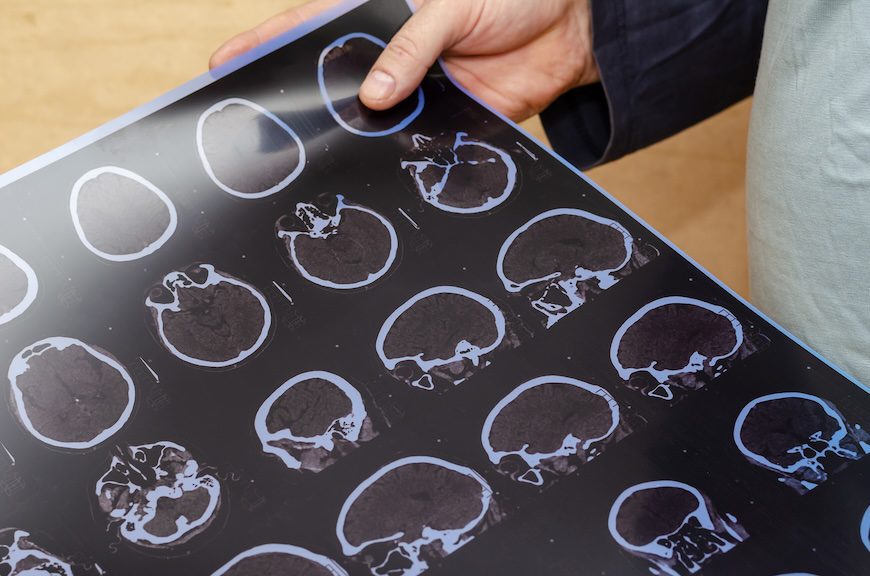New research confirms that a new Alzheimer’s blood test proved to be nearly perfect in a routine healthcare trial. These results could mark the end of the heated race to find a simple, effective test for identifying Alzheimer’s.
“The blood test can determine with 90% accuracy whether a person experiencing memory loss is suffering from Alzheimer’s,” Lund University Associate Professor of Neurology – and lead author of the study – Sebastian Palmqvist explained in a press release.
Researchers from Lund University in Sweden, who led the project, contend that this breakthrough could upend how doctors manage the disease.
“For the patient and family, this translates into more timely and accurate diagnosis, enabling early intervention, better symptomatic management, and knowledge-based choices in care and treatment,” WINIT Clinic co-founder Patrick McClure added. “For the clinician, it provides a far more objective diagnostic tool than clinical assessment alone.”
Breaking With Tradition
Historically, scientists have had to rely on more expensive – and invasive – methods, such as PET scans and cerebrospinal fluid tests. This blood test, which measures levels of Plasma Phospho-Tau217, presents a simpler, quicker alternative to that. The researchers claim that it’s capable of detecting Alzheimer’s-related changes even before symptoms appear.
After more than five years of testing, the authors say this new method matches the accuracy of cerebrospinal fluid tests. Sometimes, it even exceeds their accuracy.
While this study is the first to demonstrate the test’s reliability, it’s worth noting that it’s years away from making it to market.
Additionally, the researchers wrote, “The blood test shows positive or negative results for Alzheimer’s disease but can also indicate if the result is unclear and further investigation with a PET-camera or cerebrospinal fluid test is required for a more secure diagnosis.”
Methodology
The study involved more than 1,200 patients experiencing mild memory symptoms, long suggested to be an early indicator of Alzheimer’s. Of these, the research team assessed 515 of the patients in a primary care setting. They examined the other 698 in specialist memory clinics. The authors confirmed the blood test results with cerebrospinal fluid tests.
“Early diagnosis is crucial as new treatments that slow the disease’s progression are developed,” Lund University Professor of Neurology and co-author Oskar Hansson added. “For example, two immunotherapies have recently been approved in the [United States] and are expected to be available in Europe soon. An early and accurate diagnosis is also vital for facilitating research into new treatments.”
The researchers compared the test’s reliability against the diagnostic accuracy of doctors in primary and specialist care before they had access to the blood test or cerebrospinal fluid test results. Specifically, the research reported that primary care doctors diagnosed Alzheimer’s correctly in 61 percent of cases. Specialists performed slightly better, managing 73 percent accuracy, the paper reported.
Next Steps
“The next steps include establishing clear clinical guidelines for the blood test’s use in healthcare,” Hansson concluded. “The test is already available in the [United States] and is likely to become available in many other countries soon. Initially, it will mainly be used in specialist memory clinics. And it may take approximately one to two years to implement guidelines and training in primary care.”
As blood tests for Alzheimer’s make it into clinical practice, they could revolutionize the diagnosis and management of the disease.
“Implementation of such tests might be so widespread in the future that it changes the face of Alzheimer’s care,” WINIT Clinic’s McClure said. “It enables more appropriately targeted clinical trials, more individual treatment strategies, and perhaps new therapeutic developments. It instills great hope in all patients, families, and healthcare providers for the way to much better, more effective, and more compassionate care.”
Further Reading
FDA Approves New Alzheimer’s Drug
Mayo Clinic IDs Memory Loss Disorder Often Mistaken for Alzheimer’s
Cognitive Decline Threatens Financial Stability of Older Americans



